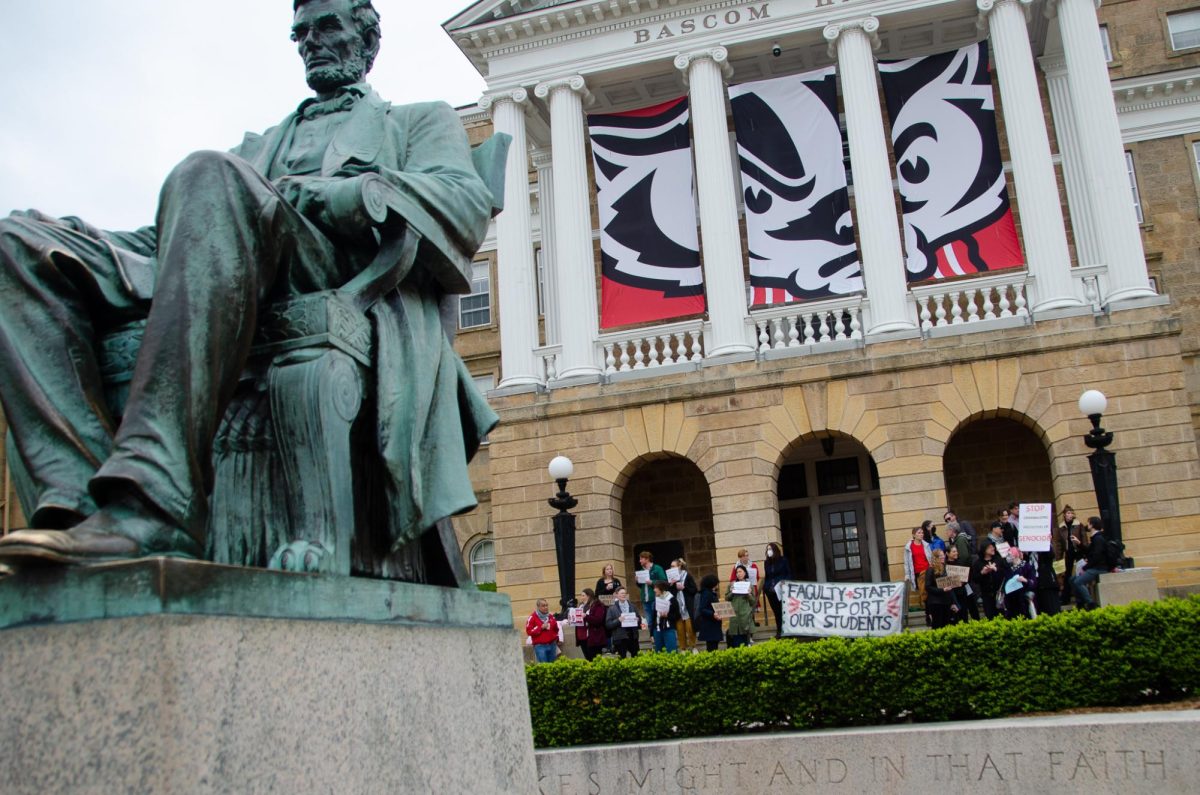The University of Wisconsin updated its campus policy Aug. 28 to restrict physical violence, noise disturbances, large hand-held signs and certain photography access, according to UW News.
UW now prohibits people from blocking and preventing others from taking photographs with the Abraham Lincoln statue at the top of Bascom Hill, according to UW News.
These policies and restrictions will be applied regardless of the expressive activity’s viewpoint or purpose, according to UW News.
UW will also continue to hold Badger Dialogues, an educational series of discussions that gives students of different backgrounds the opportunity to connect, according to UW News.
Further, UW has created a Free Expression Canvas Module — required for incoming freshmen and transfer students — that provides materials to help students further understand their First Amendment rights, according to UW News.
The updates come after the conclusion of a 12-day student-led encampment on Library Mall last April protesting the war in Gaza and calling for UW’s divestment from Israel, according to previous reporting from The Badger Herald.
It is important that students engage in different — and potentially uncomfortable — viewpoints to exchange ideas and hear new perspectives, UW Chancellor Jennifer Mnookin said in a statement.
“My hope is that, as a Badger community, we approach our differences with open minds, a willingness to listen, respect for one another and a generosity of spirit,” Mnookin said in the statement.
UW also released a new Expressive Activity Policy online document and Expressive Activity Guide, which are designed to help students, employees and campus visitors understand their civil rights and campus regulations, according to UW News.
The Expressive Activity Policy details an individual’s First Amendment rights, but also describes restrictions regarding UW and Wisconsin’s administrative code, according to the policy.
The Expressive Activity Guide offers a breakdown of which activities are and are not permitted on campus grounds. The guide serves to support individuals’ civil rights while also aiming to prevent the disruption of university-related events, according to the guide.



